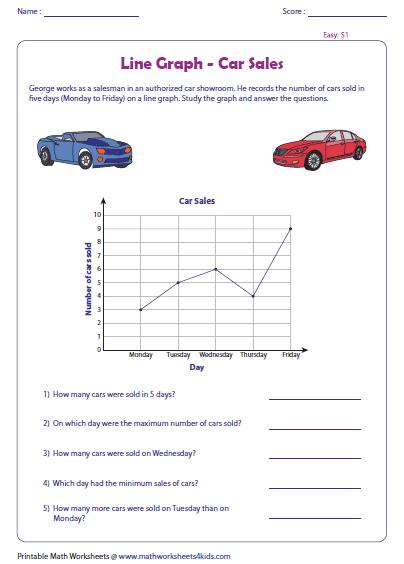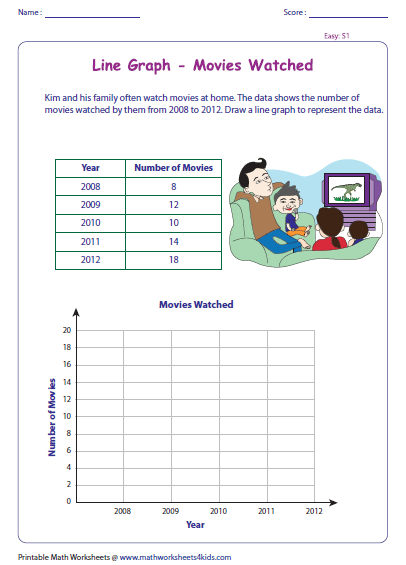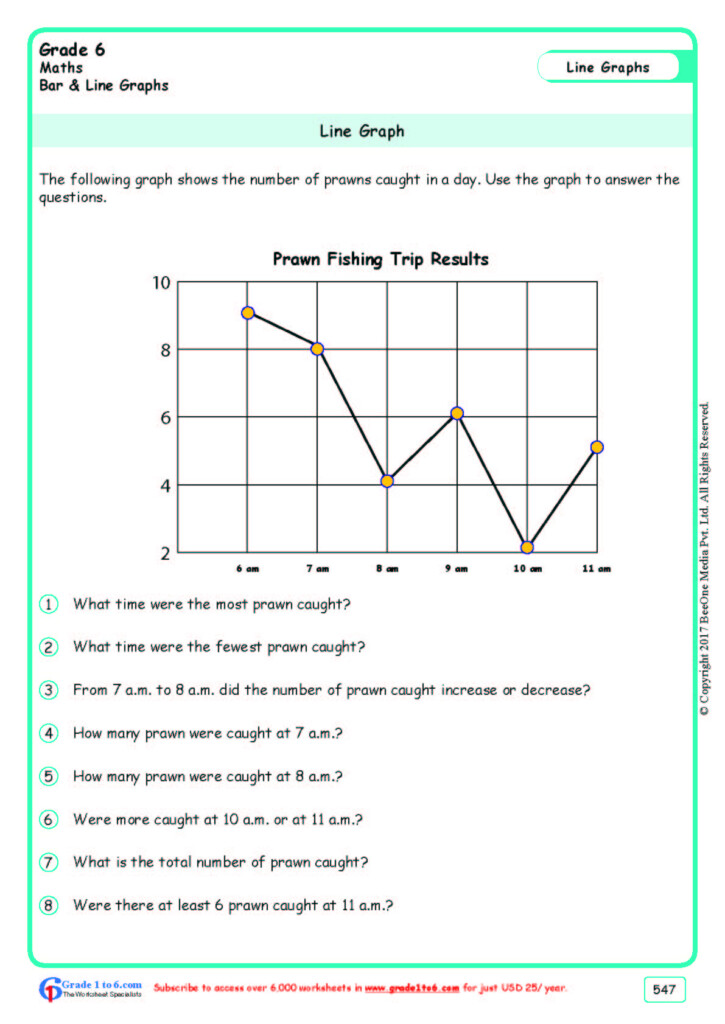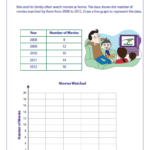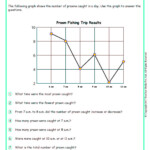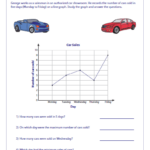Simple Line Graphs Worksheets – Line Graph Worksheets can help you develop your understanding of how a line graph works. There are different types of line graphs, and they each have their own purpose. We have worksheets that can be used to teach children how to draw, read, and interpret line graphs.
Create a line graph
Line graphs are useful tools for visualizing data. It can show trends and change over time. It can display, for example, the rate at which bacteria grows or changes in temperature and pH. These trends and patterns can help you make predictions about the future. Several different types of questions can be included in a line graph worksheet.
A line graph usually contains two axes: the X-axis, which represents horizontal data and the Y-axis, which shows vertical data. The X-axis is time and the Y axis, which is the vertical left-hand side, the numbers being measured.
Line graph worksheets are a valuable tool for teaching statistical concepts. These worksheets provide students with ample practice, which allows them to draw and interpret line graphs. Besides practicing drawing and interpreting line graphs, they also help build students’ analytical skills. These can be used to introduce students to word problems and analyze data.
Make a bar graph
Learn how to create a line graph using worksheets. This will help you visualise and compare data. Line graphs are a great way to compare data from different sources, especially when the changes are relatively small. It is also a good way to demonstrate changes in one piece of information over time.
Bar graphs can be used to interpret data, and they are particularly useful for comparing data from different categories. This kind of graph is usually made with two axes: the horizontal x-axis is used to represent categories and the vertical y-axis shows discrete values. Bar graph worksheets for elementary school students follow a systematic approach and guide kids through the process of creating a bar graph, reading it, and interpreting it.
Excel’s line and bar graph options make graphing data easy. Bar graphs are best for showing data points, trends, and proportions. While line graphs can be useful for displaying data over long periods of times, they can also be misleading. If the data is plotted incorrectly, they can exaggerate or hide certain results.
Create a scatter plot
Line graph worksheets can be used to create scatter plots from data sets. These graphs have columns that contain independent and dependent variables. If desired, you can alter the color and size of the lines and add markers.
A scatter plot shows two numeric values, and the relationship between them. This type of graph usually has two columns. The dependent variable is shown on the Y-axis and the independent variable on the X. These two values can be stacked together to create a timeline.
Predictive modeling can be done using scatter plots. Scatter plots can be used to find outliers in data. If you’re studying advanced math and science, knowing how to interpret scatter plots will be invaluable.
For a line graph, write a title
If you are looking to visualize changes over time, line graphs are the way to go. Line graphs are particularly useful for data with peaks or valleys, and they can be collected in a relatively short time. The title you use for a line graph should explain its contents. Although you can use many words to describe the graph, it should be clear and concise.
Line graphs are not only useful for graphing data over time but can also be used as a way to compare two sets. For example, a graph might compare the cost of milk in 2005 with the cost in 2005. Then, the student should identify the first point on the graph and connect it to the other points using lines.
You can place the title on graphs either above or below the graphic image. If the title is placed below the graphic image, it will not resize.
